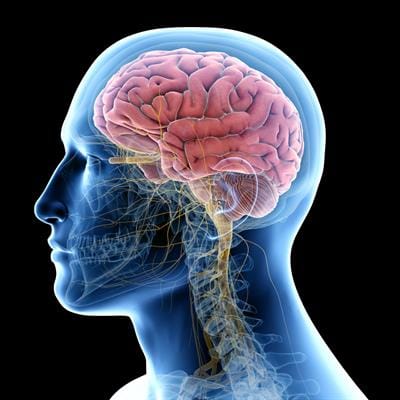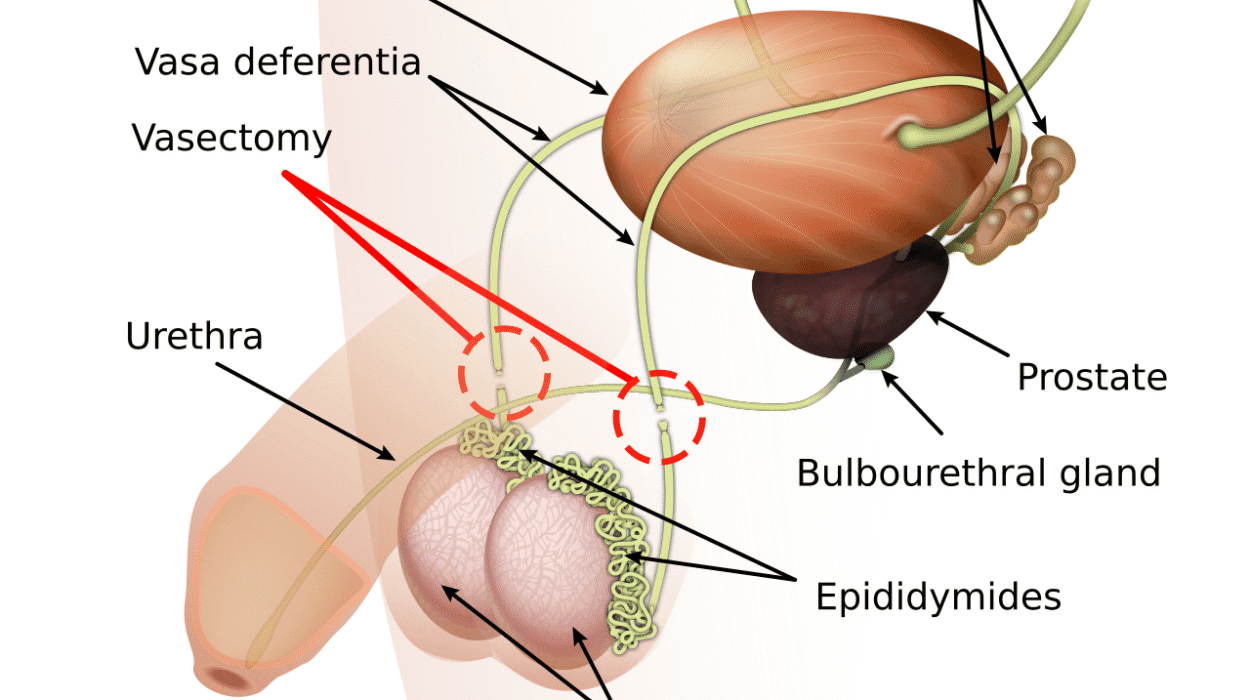Premenstrual Syndrome—three words that every woman recognizes, often with a deep sigh or an eye roll. It’s the monthly reminder that your body is on a hormonal rollercoaster, whether you’re ready for the ride or not. PMS isn’t just about cramps or mood swings—it’s a complex dance of hormones that affects your physical, emotional, and mental wellbeing. Understanding what’s happening under the surface is the first step toward managing it naturally.
PMS occurs in the luteal phase of your menstrual cycle, after ovulation and before your period begins. During this phase, levels of estrogen and progesterone fluctuate wildly. Estrogen, often associated with energy and confidence, begins to dip, while progesterone, the more sedating and calming hormone, takes the lead. For some women, this hormonal shift feels like a gentle tide. For others, it feels more like a tsunami. When progesterone becomes dominant, or if estrogen dips too low, it can lead to a cascade of symptoms—cramps, irritability, bloating, fatigue, cravings, anxiety, depression, headaches, and breast tenderness.
But PMS isn’t inevitable. It’s not just a monthly curse you have to endure. There are natural, effective ways to help your body transition through the luteal phase more smoothly. And it starts with listening to your body and giving it what it needs—not more punishment, but more care.
Food as Medicine: Nourishing Your Hormones
When it comes to managing PMS, what you put on your plate matters as much as anything else. Food is not just fuel—it’s information for your cells, a set of instructions that can either soothe or inflame your hormonal ecosystem.
Balancing blood sugar is one of the most powerful things you can do to reduce PMS symptoms. Those sudden mood swings and overwhelming cravings? They often stem from unstable glucose levels. When blood sugar spikes and crashes, cortisol and insulin are triggered, which throws your delicate hormonal balance even further off track. Eating regular meals that combine healthy fats, protein, and complex carbohydrates can keep your blood sugar steady, helping you feel more grounded and less like you’re on an emotional yo-yo.
Leafy greens, cruciferous vegetables like broccoli and cauliflower, and fiber-rich foods help your liver and gut eliminate excess estrogen, reducing symptoms like bloating, breast tenderness, and irritability. Healthy fats—think avocados, nuts, seeds, and olive oil—nourish your hormone production. Omega-3 fatty acids, especially from wild-caught salmon or flaxseeds, can help combat inflammation and reduce menstrual cramps.
Magnesium-rich foods like dark chocolate, spinach, pumpkin seeds, and black beans are PMS superheroes. Magnesium helps ease anxiety, support sleep, and reduce cramping. Vitamin B6 from foods like bananas, chickpeas, and poultry can lift your mood and ease irritability. Calcium and vitamin D also play a role in hormone regulation, and a deficiency in either can worsen PMS symptoms.
And don’t forget hydration. Water helps flush out toxins, reduces bloating, and supports circulation. It sounds basic, but drinking enough water daily can make a surprising difference in how you feel before your period.
The Herbal Allies: Gentle Powerhouses of Nature
For centuries, women have turned to herbs to help manage their cycles. Modern science is finally catching up to what traditional medicine has long known: herbs can be powerful allies in balancing hormones and easing PMS.
One of the most well-known herbs for PMS is chasteberry, also known as vitex. It works on the pituitary gland, helping to regulate the production of progesterone and prolactin. Many women report significant relief from symptoms like breast tenderness, mood swings, and irregular cycles after using it consistently for a few months.
Dong quai, sometimes called the “female ginseng,” is another potent herb traditionally used in Chinese medicine to support menstrual health. It helps improve circulation, ease cramps, and rebalance hormones. Black cohosh, evening primrose oil, and red raspberry leaf are also frequently used to support uterine health and reduce PMS discomfort.
Adaptogens, such as ashwagandha, rhodiola, and holy basil, help your body adapt to stress. They don’t work directly on sex hormones, but because stress plays such a huge role in PMS symptoms, managing your cortisol levels can indirectly improve your hormonal balance. These herbs help you feel calmer, sleep better, and handle the everyday stressors that otherwise amplify PMS symptoms.
Herbal teas can be a soothing, gentle way to incorporate these plants into your routine. Sipping on a warm mug of chamomile or peppermint tea in the evenings not only helps relax your body and mind but can also ease digestion and bloating.
The Movement Prescription: Exercise That Supports, Not Depletes
When PMS hits, the last thing many women want to do is exercise. But movement can be one of the most effective tools for natural symptom relief—when it’s done with compassion and strategy. Exercise helps boost endorphins, your brain’s natural feel-good chemicals, which can counteract mood swings, anxiety, and depression. It also supports circulation and reduces bloating and water retention.
But not all exercise is created equal. During the luteal phase, your energy is lower and your body is more sensitive to stress. This is not the time for punishing workouts or high-intensity interval training every day. Instead, focus on gentle, restorative movement that supports hormonal balance. Think yoga, Pilates, walking, swimming, or light strength training. These activities can reduce inflammation and support your nervous system without triggering excess cortisol.
Yoga, in particular, has been shown in numerous studies to help relieve PMS symptoms. Specific poses can reduce cramping, ease lower back pain, and calm anxiety. Gentle twists and forward folds can support digestion and help relieve the pressure of bloating.
Even just ten minutes of stretching or walking can shift your mood and help you reconnect with your body. The goal isn’t to burn calories or “earn” your food—it’s to move in a way that feels nourishing, intuitive, and kind.
Sleep: The Unsung Hormone Hero
Sleep is where the real magic happens for hormone health. Your body does much of its repair and regulation work while you rest. And yet, sleep is often one of the first things to fall apart during PMS. Maybe you’re lying awake with racing thoughts, or waking up in a sweat, or just tossing and turning with discomfort. Whatever the cause, poor sleep compounds every other symptom.
Progesterone, the dominant hormone in the luteal phase, has a sedative effect and can help support deep sleep. But if your levels are too low, or if cortisol is running the show, sleep becomes elusive. Creating a solid evening routine can help signal your body that it’s time to wind down. This might mean dimming the lights an hour before bed, avoiding screens, drinking calming herbal tea, or taking a warm bath.
Magnesium can also play a key role in improving sleep quality. Whether you take it as a supplement or soak in a magnesium-rich Epsom salt bath, it helps relax your muscles and calm your nervous system. Meditation or breathwork before bed can help quiet your mind and bring you into a more restful state.
Sleep is not a luxury—it’s a non-negotiable pillar of hormonal health. Aim for 7 to 9 hours of quality sleep each night, especially in the days leading up to your period. Your hormones, mood, and overall resilience will thank you.
Managing Stress: The Root of the Root
Stress is one of the most underappreciated drivers of PMS. Chronic stress elevates cortisol, which competes with progesterone and disrupts your hormonal balance. High cortisol can lead to more intense mood swings, fatigue, and irritability. If you find that your PMS is worse during times of emotional upheaval or life chaos, it’s not a coincidence.
Stress doesn’t just come from obvious things like work deadlines or arguments. It comes from overcommitting, skipping meals, poor sleep, and even overexercising. Your body doesn’t distinguish between emotional and physical stress—it just reacts.
That’s why it’s so important to build daily practices that help you manage your stress load. Mindfulness, meditation, journaling, and breathwork are powerful tools that help bring your nervous system back into balance. Even taking five minutes a day to sit quietly and breathe deeply can lower cortisol and help reset your system.
Spending time in nature, connecting with loved ones, laughing, dancing—these are all natural stress relievers that support your hormonal health. The key is consistency. You don’t have to go on a silent retreat or spend hours in therapy (although those things can help); you just need to give your nervous system a break, every day, in small, sustainable ways.
Cycle Syncing: Living in Rhythm With Your Hormones
One of the most empowering approaches to PMS is learning to live in sync with your menstrual cycle. Instead of fighting your body or ignoring its signals, cycle syncing invites you to lean into your natural rhythms and adjust your lifestyle accordingly.
In the luteal phase, when PMS symptoms emerge, your body is telling you to slow down, turn inward, and take stock. This is the time for introspection, planning, and self-care—not launching new projects or pushing past your limits. By honoring this phase and adjusting your schedule and expectations, you reduce the stress that amplifies PMS.
Meal planning can also shift with your cycle. In the follicular and ovulatory phases, your digestion is stronger, and you may crave lighter, fresher foods. In the luteal phase, your body needs more support—warmer, grounding meals with healthy fats and complex carbs. Listening to these shifts and honoring your cravings in a nourishing way can prevent binge eating and emotional spirals.
Even your workouts can follow your cycle. Go harder when your energy is high, and dial it back when your body is calling for rest. This isn’t about being lazy—it’s about being strategic. Your body is cyclical, not linear, and respecting that rhythm leads to less resistance and more harmony.
The Emotional Landscape: Honoring Your Feelings Without Shame
PMS doesn’t just affect your body—it touches your heart, your thoughts, your relationships. Emotions run higher, sensitivities sharpen, and what you normally brush off can suddenly feel overwhelming. But these emotions aren’t wrong or shameful. In fact, they can be deeply revealing.
Many women report feeling more intuitive, honest, and connected to their truth in the premenstrual phase. The veil lifts, and you see things clearly—what’s working, what’s not, what needs to change. This clarity can feel raw and intense, but it’s also a gift. Learning to sit with your feelings, instead of dismissing them or shaming yourself, is a powerful step toward self-trust and healing.
Therapeutic practices like journaling can help you process these emotions and understand the deeper messages behind them. Therapy, coaching, or support groups can also offer safe spaces to explore what’s coming up for you. Emotional health is not separate from hormonal health—it’s intertwined. When you honor your emotional truth, you support your body in profound ways.
When to Seek Help: Knowing Your Limits
While natural strategies can dramatically reduce PMS symptoms, there are times when professional support is needed. If your symptoms are debilitating—if you’re missing work, withdrawing from relationships, or feeling overwhelmed to the point of despair—you may be dealing with Premenstrual Dysphoric Disorder (PMDD), a more severe form of PMS. PMDD is not just “bad PMS.” It’s a diagnosable condition that deserves medical attention and compassionate care.
You don’t have to suffer in silence. Functional medicine doctors, naturopaths, and hormone specialists can offer testing, individualized support, and treatment options that go beyond symptom suppression. Sometimes, addressing underlying conditions like thyroid imbalances, insulin resistance, or gut dysbiosis can dramatically improve PMS.
There’s no shame in seeking help. Your health is worth advocating for, and you deserve to feel well—not just three weeks of the month, but always.
The Path to Balance: Trusting Your Body Again
PMS doesn’t have to rule your life. When you begin to understand the deeper rhythms of your cycle, when you feed your body what it truly needs, and when you learn to move, rest, and live in harmony with your hormones, everything starts to shift. PMS becomes less of a curse and more of a signal—one that invites you to slow down, care more deeply for yourself, and return to balance.
Natural healing is not always fast. It takes time, patience, and a willingness to listen. But the journey is worth it. Because it’s not just about managing symptoms—it’s about reclaiming your relationship with your body, your emotions, and your inner wisdom.
In the end, your cycle is not a burden. It’s a blueprint. And when you learn to read it, you discover that your body has been trying to speak to you all along—not in pain, but in wisdom.






